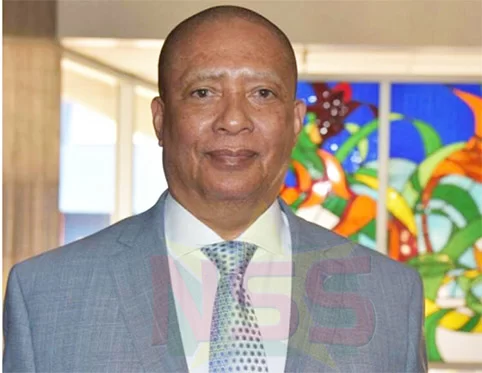The foreign exchange market in Suriname is far from functioning optimally, according to Maurice Roemer, Governor of the Central Bank of Suriname (CBvS). In an interview with Starnieuws, Roemer described the market as ‘completely imperfect,’ with exchange rates heavily influenced by speculation, expectations, and competition rather than economic fundamentals. ‘A market without rules is no market at all,’ he emphasized. To address this, the CBvS is collaborating with the government to develop adequate legislation and clear regulations for the currency market. Roemer stressed the need for exchange rates to be determined by real economic factors rather than irrational motives or profit-seeking behavior. This week, the CBvS held a special meeting with representatives from banks and currency exchange offices, including those not formally affiliated with any organization. Roemer explained that these discussions were necessary as the market is dominated by players who set rates without fundamental considerations. He highlighted fiscal policy (government spending) and monetary policy (managed by the CBvS) as the key determinants of exchange rates. The CBvS has intervened multiple times recently to curb irrational price increases driven by competition and speculation. ‘Such behavior accelerates rate hikes and is disconnected from economic reality,’ Roemer noted. Despite some recent stability, the Governor pointed out that rates set by banks and exchange offices are often influenced by non-transparent entities. ‘The worst scenario is when institutions base their rates on what dubious organizations offer. This leads to competition with illegal players, which is socially irresponsible,’ he said. Roemer urged banks and exchange offices to report illicit rates and informal trading to the CBvS, as such practices disrupt the establishment of a uniform exchange rate. ‘Arguments that one must adapt to illegal rates are unacceptable,’ he stated. The CBvS’s mandate focuses on price stability and acceptable inflation, with a uniform exchange rate being crucial. Roemer acknowledged that the current monetary framework is not yet optimal but emphasized efforts to create a more effective system. ‘In a small, open economy like Suriname, exchange rate increases impact prices by more than 60%, making exchange rate policy particularly important,’ he explained. A unique aspect of Suriname’s currency market is that every citizen has free access to it, unlike in most other countries. ‘This significantly influences the market,’ Roemer said. He noted that while foreign currency is primarily used for import payments, many individuals and businesses buy it to protect their wealth or make profits, creating demand not based on economic necessity but on precaution, speculation, or profit-seeking. ‘This undermines the economic basis of the exchange rate,’ he warned. Roemer advocated for a balance between freedom and regulation, suggesting that the absolute freedom to trade currency since the 1990s needs revision. ‘I’m not saying this freedom should disappear, but it must be subject to rules. Absolute market freedom can result in survival of the fittest,’ he said. He also pointed out that commercial currency trading is an economic offense under the law, but current legislation is insufficiently clear. ‘We lack laws to properly guide this market mechanism. This gap must be addressed quickly to protect purchasing power and bring inflation to normal levels,’ Roemer stated. The CBvS aims to build on recent successes, such as achieving a reasonable unification of exchange rates through a weighted average system. ‘We must maintain this success. A well-regulated market strengthens the credibility of monetary policy,’ he said. Roemer called for responsible market behavior, emphasizing that exchange rate formation should not become a profit-driven commodity. ‘We must all work toward a healthy market where rates are determined by economic reality, not speculation,’ he concluded. Regarding the government’s fiscal policy, Roemer refrained from making definitive statements but noted that the current administration has not shown signs of unrestrained spending, particularly in the consumptive sector. However, the CBvS is still dealing with the aftershocks of past spending policies. ‘We are trying to neutralize these effects through our open market operations. When the government spends heavily, the Central Bank must tighten its policies,’ he said.
